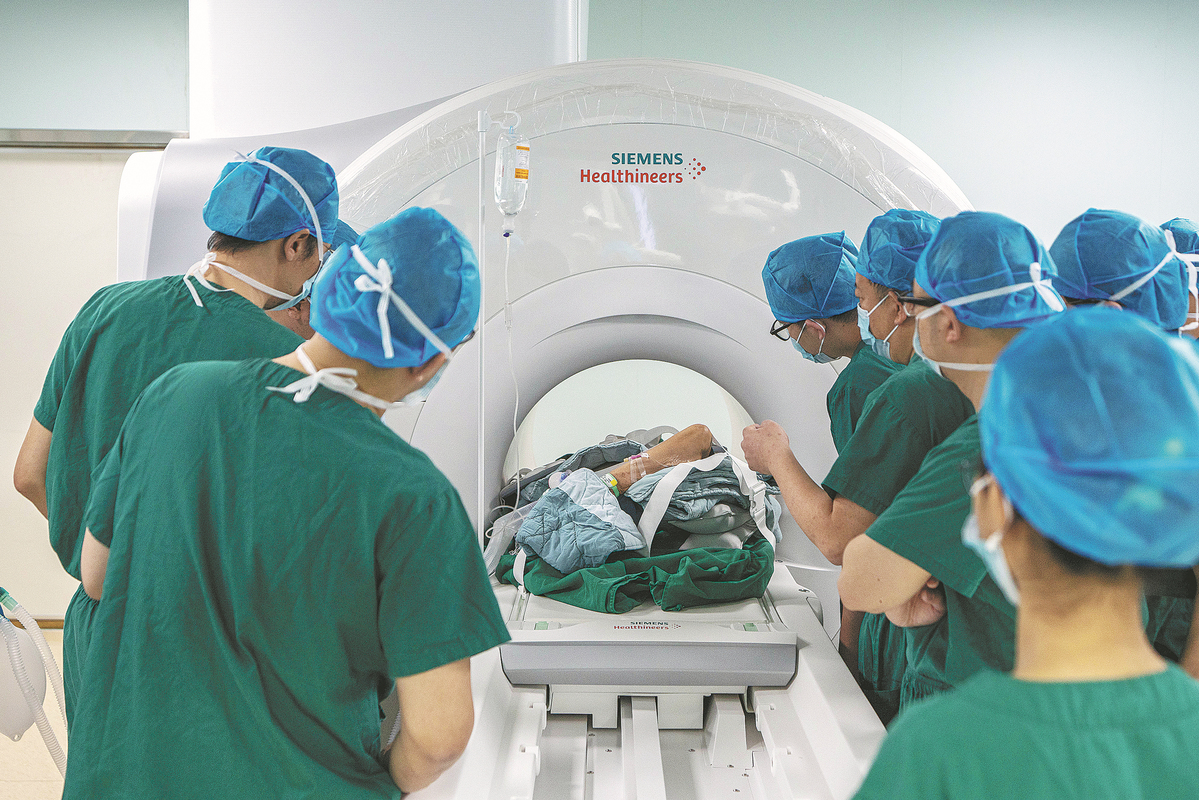Hainan FTP boosts global trade hub
Tropical island province sees surge in global business, bigger industrial draw


Hainan Free Trade Port is accelerating its transformation into a global trade and services hub, with preferential tax and zero-tariff policies fueling double-digit growth in industries ranging from aircraft maintenance and engine repair to agro-processing, duty-free retail and healthcare.
As Hainan province prepares to launch island-wide special Customs operations in December, officials report surging international business and expanding industrial ecosystems that are drawing in companies.
Since its launch in 2022, the one-stop aircraft maintenance base in the FTP has serviced more than 2,300 aircraft, according to company officials. The facility has performed full-body painting for over 270 planes and repaired 58,000 aviation components, making it a cornerstone of the local aviation industry.
Policy support has been instrumental. Haikou Customs said it has backed the sector through temporary import and export repair policies. Under these measures, 100 aircraft have been repaired, generating benefits worth 2.6 billion yuan ($357 million) and tariff exemptions of 38 million yuan.
The base leverages exemptions from import duties for inbound aircraft repairs, flexible Customs rules and tax breaks on key parts to lower costs and turnaround times for foreign clients. These advantages have attracted more than 100 aircraft from over 20 overseas carriers, including Qatar Airways and Iberia Airlines.
"We're seeing a lot of loyal customers return, and many new clients are coming in as well," said Yuan Yong, Party secretary of Grand China Aviation Maintenance Co, a unit of Hainan Airlines Aviation Technic Co. Their integrated service model, which combines repairs and painting in one location, avoids costly ferry flights and improves efficiency, he said.
Hainan's aviation maintenance hub has also worked to streamline its supply chain. It now stocks over 2,200 types of parts — nearly 18,000 items in total — dramatically shortening supply times, said Liu Jia, general manager of the base's procurement management department.
"This has shortened our support cycle to within one week and greatly enhanced the efficiency of our entire aviation materials support," Liu said.
The system allows overseas suppliers to store parts in a bonded "aviation materials supermarket". Airlines only pay once parts are used, turning the traditional "search for parts" model into one where "parts wait for people". As a result, wait times for components have been cut by two to three months.
Cost savings are another major draw. Yang Wenbo, deputy director of the base, said preferential FTP policies — such as waiving deposit requirements for inbound aircraft and allowing bonded materials — have significantly lowered expenses.




































